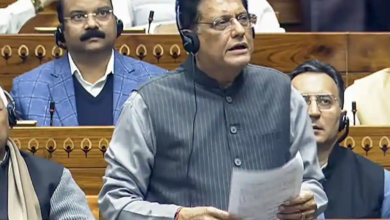No Need To Reform The Collegium System, According To Former CJI UU Lalit
UU Lalit, a former Chief Justice of India (CJI), believes that the collegium system for choosing judges is adequate as is. Recently, there has been debate about the subject.
On February 9, he discussed Why Study Law: Social Duty and Legal Responsibility at the opening session of the 12th edition of ThinkEdu Conclave.
He argued that legal students should also be required to complete internships, just like medical students do so that they can work with rural residents.
According to Justice Lalit, these instances will enlighten them about the weaknesses of that population and transform them into complete professionals and decent people.
He noted that such an internship program will also contribute to educating the rural population about their legal rights and increasing their access to legal aid.
According to Lalit, he has actually advocated for the implementation of a system for internships in which, on principle, law students are required to give back to society.
Since about 66% of our population lives below the poverty line, Lalit remarked in his testimony as the chairperson of NALSA (National Legal Services Authority), nearly two-thirds of the legal matters concerning them should be handled by legal aid services.
Only 15% of this population can, however, access legal aid services. This shows that many people either aren’t aware of or don’t trust the legal assistance system that is accessible to them.
He stated that it is still a problem for the poor in rural areas to mortgage their homes and pay exorbitant interest rates to pursue legal action and that this practice is against the law.
Toward the end of the session, Justice Lalit responded to questions from the public and discussed his time as CJI, including the reforms he implemented. He emphasized that he did not see the necessity to alter the collegium system of the Supreme Court at this point.
Additionally, he discussed the idea he has put forth for the appointment of legal aid defense attorneys in each district, similar to public prosecutors. The system of legal assistance defense attorneys, which is led by one chief counsel and supported by two to three junior counsels, ideally one woman, will aid in giving legal aid to the underprivileged and indigent.
News Mania Desk






